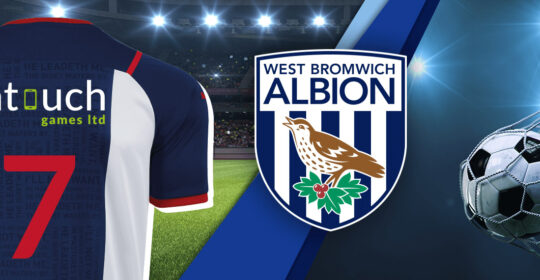Real money gambling is a contentious topic, and while you can enjoy it responsibly, it also poses risks. Yes, you can practice responsible gambling.
You can achieve this by educating yourself through Gamblizard's no wagering free spins reviews, where you can discover safe platforms for playing casino games. And while playing online at sites that offer no wagering free spins is fun and straightforward, it may not always be perceived positively.
Gambling can potentially lead to financial difficulties and addiction. It is, therefore, important for you to consider the ethics of gambling sponsorship in football, as well as the potential impact it can have on both fans and clubs.
Table of contents
- Concerns that arise from this issue
- Counterarguments for gambling sponsorship in football
- Consequences of gambling sponsorship in football
- Potential consequences of gambling sponsorship for fans & clubs
- Examination of case studies of gambling sponsorship in football
- Positive outcomes for clubs and fans
- Negative consequences for clubs & fans
- To sum up
A number of concerns arise from this issue
Firstly, there are concerns about normalising gambling among fans. Mainly those who may not understand its dangers, particularly children.
There is also a concern that vulnerable individuals could be harmed by exposure to gambling advertising.
As a final point, there are concerns over how much money clubs will make through such deals. And whether they will use these funds wisely or irresponsibly.
Counterarguments for gambling sponsorship in football
There is, however, good reason for supporting sponsorship. It brings massive economic benefits to clubs and the football industry as a whole. This helps clubs to grow and develop their projects for the future.
Gambling sponsorship is one of the most lucrative sources of revenue for clubs. It is a fundamental part of their business model and can't be replaced easily or quickly as a revenue stream.
For example, Statista reports that casinos, online gambling and sports betting accounted for 231 billion dollars worldwide in 2021. A large percentage of this revenue goes towards building new stadiums or improving existing ones across Europe.
Also, purely from a freedom of choice perspective, betting and gambling at EU casinos that accept UK players should be a choice the individual makes. We are already inundated with ‘Nanny State' governance that curtails our freedoms in the long run.
The consequences of gambling sponsorship in football
The consequences of gambling sponsorship in football are extensive and can be both ethical and social. The increased prevalence of gambling advertisements has been shown to increase the likelihood that people will develop a gambling problem. Or at least engage in hazard-prone betting behaviour when playing casino games.
Additionally, the presence of prominent betting companies on the jerseys of teams could potentially damage fans' trust in those clubs. It may seem to them as though their favourite sports organisations are promoting something they disapprove of. Many fans would argue that football shouldn't be associated with gambling. And if this becomes commonplace, then perhaps there will come a point where people stop watching altogether!
Potential consequences for fans and clubs
The primary concern for fans and clubs is the increased likelihood of gambling addiction. Fans are more likely to develop a problem with gambling if they see it as normal and acceptable. And this can be exacerbated by the constant exposure to casino features through sponsorship deals. Supporters and football clubs have a trusting relationship.
However, fans could end up feeling that their club has been corrupted. Then this could have serious consequences for both parties. It could lead to:
- Lower attendance at matches
- Less fan participation in club activities (such as merchandise sales), or
- Boycotts of products sold by sponsors
Gambling sponsorships, in particular sportsbook sponsorships, could ruin a football club's reputation. Bettors and fans might consider that these clubs are prone to match-fixing in order to manipulate the odds.
Examining case studies of gambling sponsorship
The impact of gambling sponsorship in football has been the subject of much discussion. While some argue that it is a positive development that helps grow the game, others have argued that it damages the integrity of football and puts fans at risk.
In this section, we will examine some examples from both sides of the debate:
Positive outcomes for clubs and fans
There are many examples, and we're going to name just a few of them. If a club has an exciting young player who's attracting attention from other teams or potential sponsorships, it might help them stay at the club by offering them more money than they would get elsewhere (or even just keeping them happy).
In addition to the obvious revenue-generating benefits for clubs, gambling sponsorship can also be a positive for fans. For example, if a club has a deal with a betting company that allows you to bet on your team online, this can encourage more people to watch matches and increase their knowledge about the game.
As we cannot name all of them, we'll add a few more:
- Increased income through ticket sales and merchandise sales
- Increased revenue through broadcasting rights deals
- Greater exposure via advertising campaigns
- Sponsorship of charities by gambling companies
Negative consequences for clubs and fans
Sponsorships that involve gambling have negative consequences beyond those that directly affect clubs and fans. There is also the potential for a detrimental impact on football's reputation as a sport. Many people who gamble do so responsibly.
It is important to note that gambling addiction and related harm can be caused by any type of gambling activity. This includes online betting.
Summing up
Gambling sponsorship is a controversial issue, and for a good reason. The pros and cons of gambling sponsorship in football have been debated for many years.
Gambling companies are eager to associate themselves with sports because it can generate positive publicity for their brands. However, they also risk damaging their reputation if they are associated with any scandals or negative incidents involving the sport itself.
For fans and clubs, there may be positive consequences if they receive money from gambling companies:
- more resources could lead to better facilities at stadiums or training grounds
- higher wages could attract better players
- sponsorship deals could raise awareness of the club
On the other hand, though – depending on where your values lie –
you might think that these benefits come at too high a cost. Namely by promoting gambling addiction amongst young people. Many of them look up to professional sports stars as role models (or even see them as heroes).
This research has provided evidence of the ethical issues that gambling sponsorship poses. Clubs should consider these implications when considering gambling sponsorships.
The industry as a whole should also take note of this issue. In particular, how it impacts its reputation and fans' perception as well as their own financial gain.




